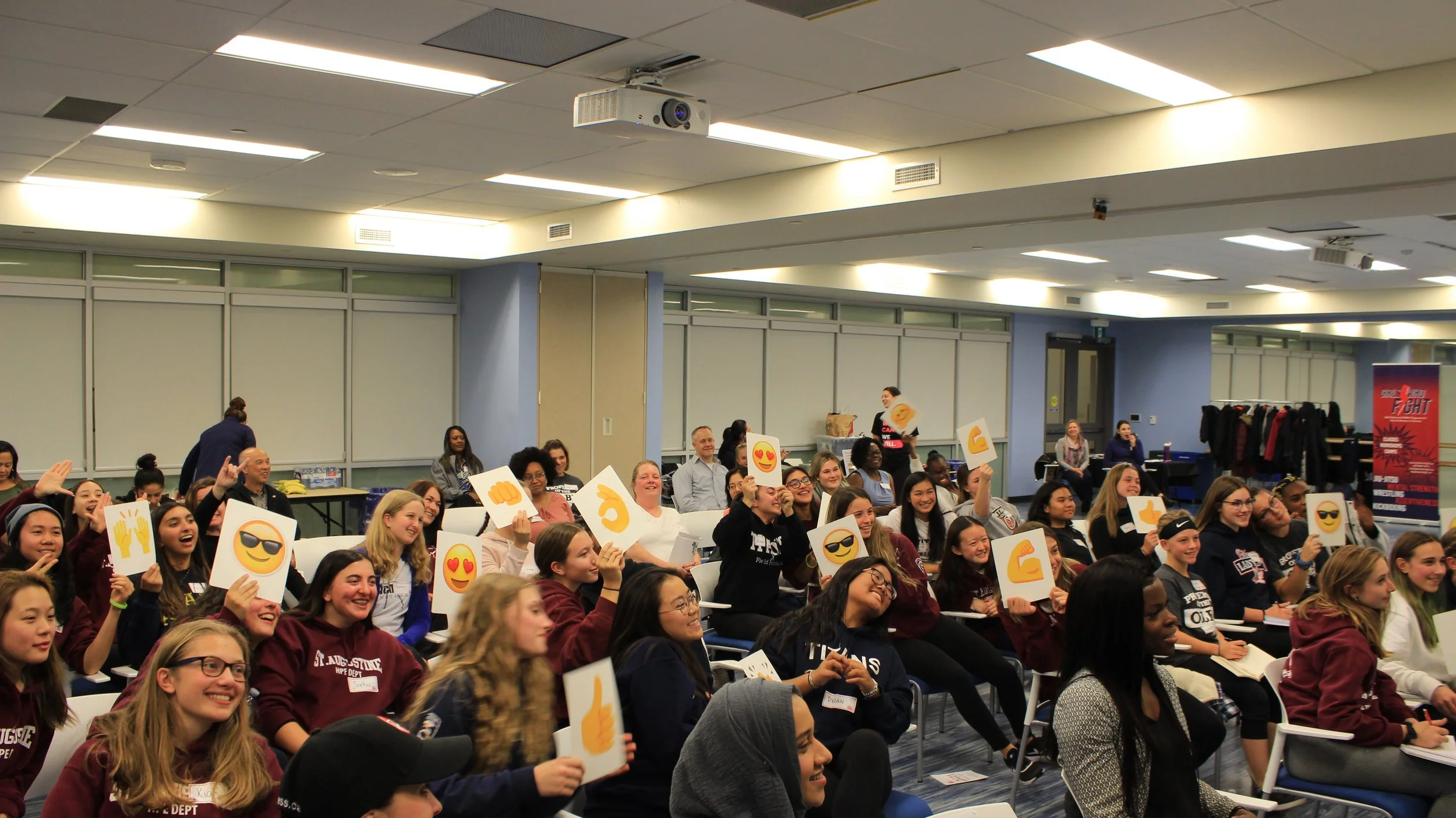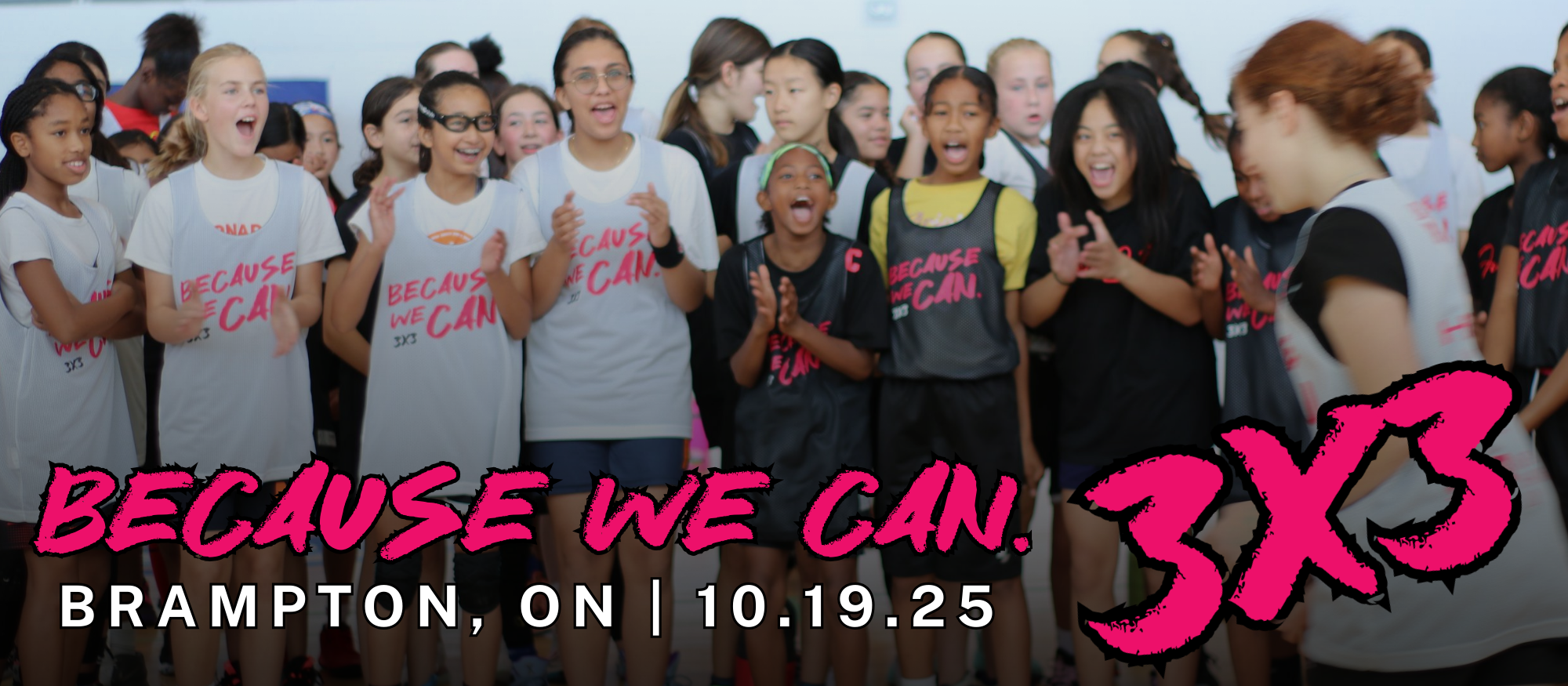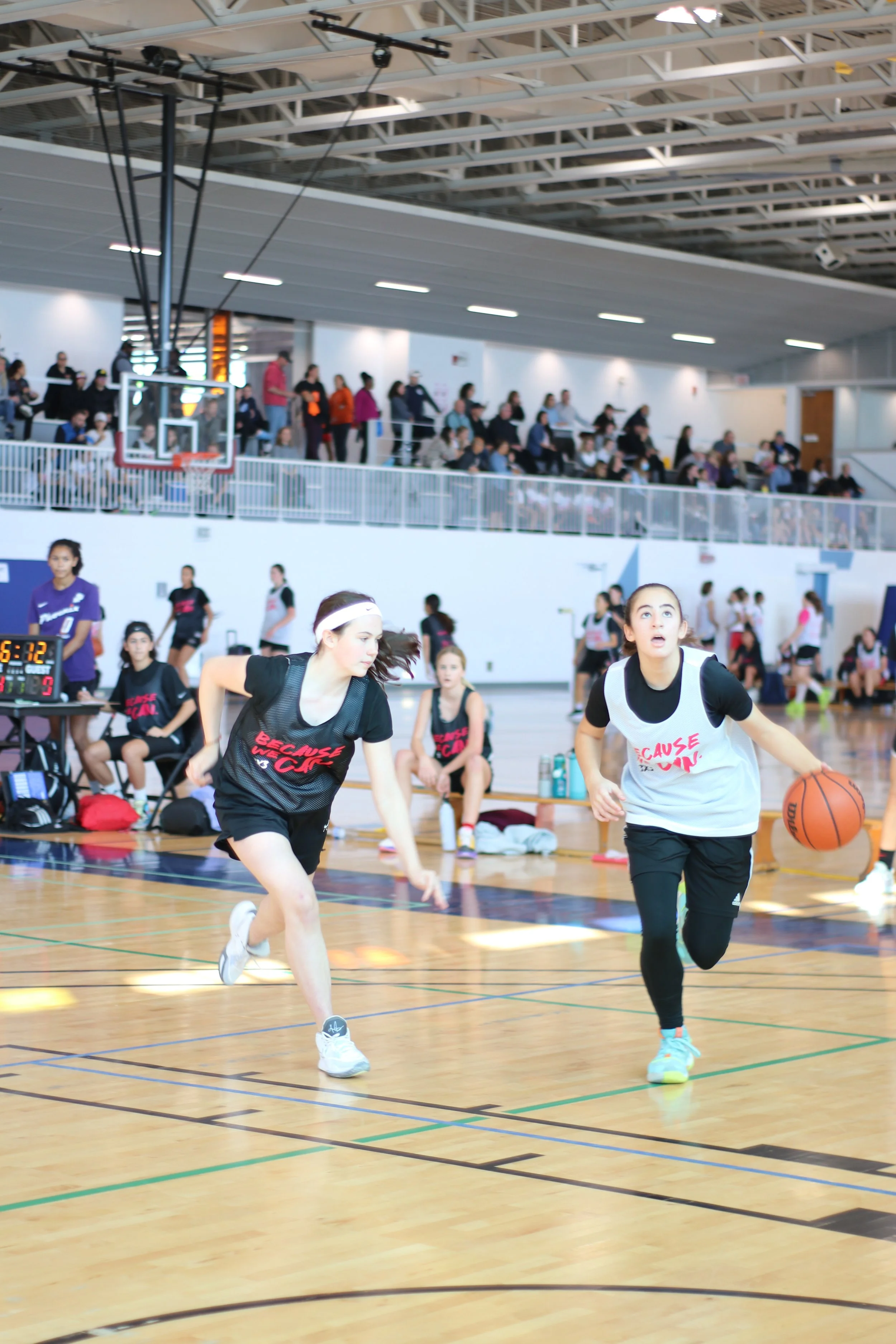
Upcoming Initiatives…
-

Because We Can. 3x3
OCTOBER 19, 2025 | BRAMPTON, ON
-

Because We Can. 3x3
JUNE 21, 2025 | KINGSTON, ON
-

SHE CAN CLASSIC. TOURNAMENT
FEBRUARY 8-9, 2025 | DURHAM, ON
-

Because We Can. Pickleball
DECEMBER 28, 2024 | DURHAM, ON
-

IN THE HUDDLE
OCTOBER 21, 2024 | MARKHAM, ON

"Lead Thru Sport is an exceptional organization that has had such an empowering and positive impact on both my daughters. They have attended a wide variety of events and programs with Lead Thru Sport where they have learned new things, developed important skills, and increased their confidence. I think every girl should experience the amazing events and programs LTS has to offer and get exposure to the inspirational women who run the organization.” - Parent
“I have been involved with Lead Thru Sport for 3 years and it was a great experience. Not only was Lead Thru Sport a fun and friendly program, but it helped me boost my confidence and allowed me to excel to my fullest ability.” - Athlete, 12 years old
“Lead Thru Sport is a well run organization with amazing female leaders. LTS has helped me become a better leader, a better communicator, and has helped me build my confidence by getting me to try new things.” - Athlete, 13 years old
“LTS is the best because they are very supportive and encourage you no matter what. They teach you to be leaders not only in sport but also in life.” - Athlete, 13 years old
“Empowering and insightful. I'm very happy that I have had my players involved in this organization. I have seen them become better leaders and be part of a larger community. Thank you, Lead thru Sport!” - Coach
“LTS has provided me with positive and supportive experiences surrounded by like-minded individuals. I leave every event inspired and empowered.” - Community Member
“LTS has a uniquely welcoming way of connecting females to build an empowered community of athletes and leaders in sports.” - Community Member

